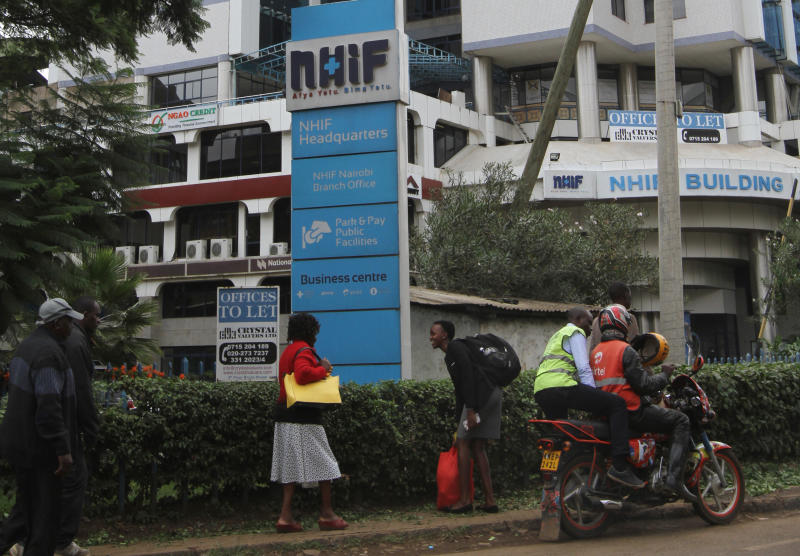×
The Standard e-Paper
Join Thousands Daily

Members of the public walk past the National Hospital Insurance Fund (NHIF) Headquarters in Upper Hill, Nairobi [Elvis Ogina, Standard]
Plans by the National Hospital Insurance Fund (NHIF) to scale down remittances to private hospitals resulted in a standoff last week. Seemingly, remittances from NHIF to private hospitals had been reduced by 50 per cent.